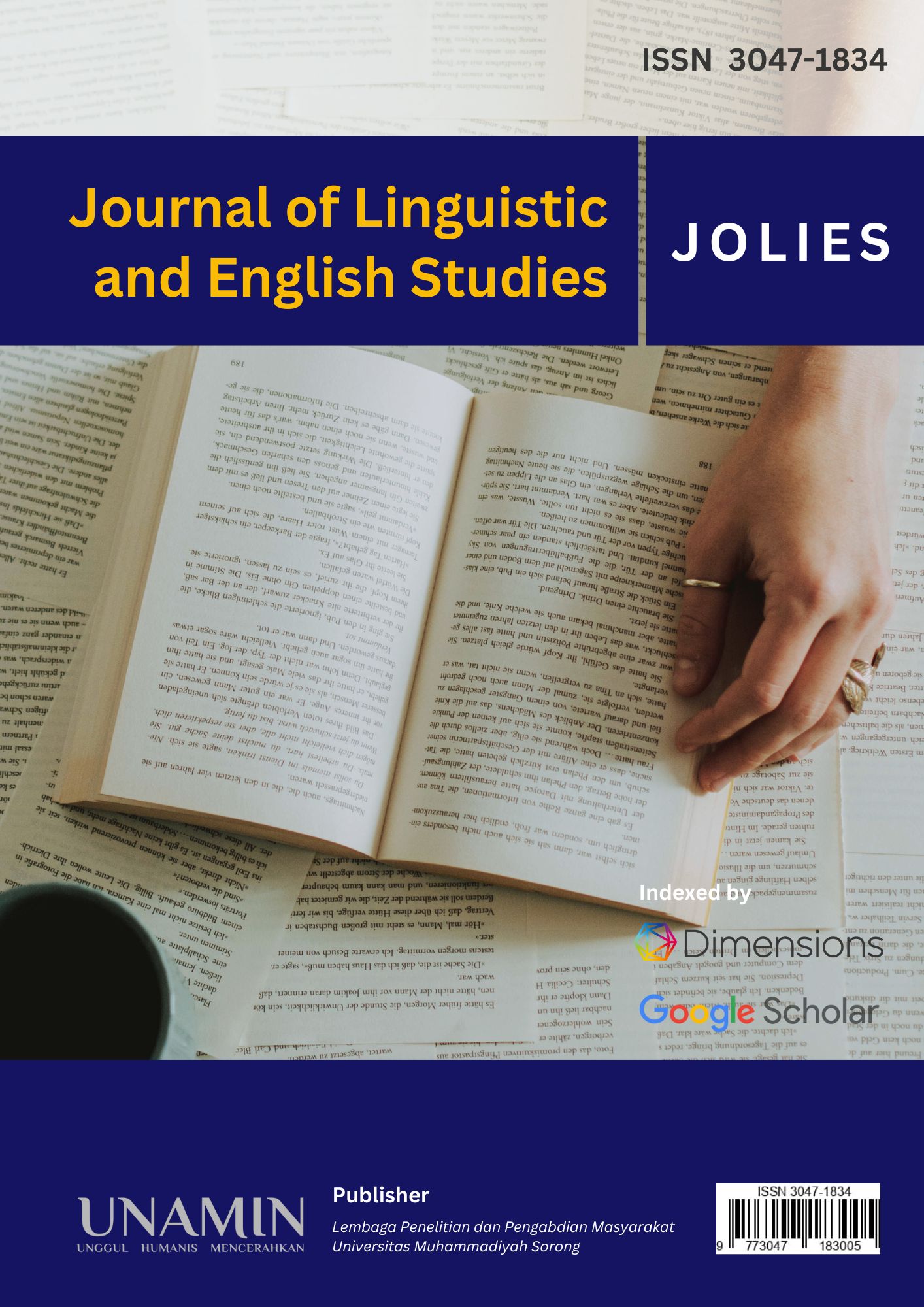Expressive Language Disorder in High School Students
Role-Play as a Coping Strategy at SMA Negeri 5 Kabupaten Sorong
DOI:
https://doi.org/10.33506/jole.v2i2.4575Keywords:
Expressive Language Disorder, Role Play, Coping Strategy, HighschoolAbstract
This research explores the role of roleplay as a coping strategy for expressive language disorders among high school students, specifically at SMA Negeri 5 Kabupaten Sorong. Communication, especially in language learning, is essential for students to effectively express their feelings, thoughts, and opinions. However, many students experience difficulties in verbal expression, often due to anxiety and fear of making mistakes in public speaking. This challenge, also referred to as a speech disorder, hinders students' ability to communicate clearly. The study aims to assess the effectiveness of roleplay in overcoming these challenges by providing a safe, interactive, and engaging method for students to improve their speaking proficiency. Using a combination of pre-tests, post-tests, and observational data, this study evaluated the improvement in students' confidence, fluency, and overall communication skills through roleplay activities. The pre-test results showed that students' scores ranged from 5 to 9 in Feelings, 5 to 11 in Thoughts, 4 to 9 in Opinions, and 2 to 7 in General communication strategies. Post-test results indicated significant improvement, with scores ranging from 6 to 12 in Feelings, 7 to 12 in Thoughts, 7 to 12 in Opinions, and 3 to 8 in General strategies. The results demonstrate significant improvements in students’ abilities to express feelings, articulate thoughts, and provide opinions in English, demonstrating the effectiveness of roleplay as a tool to enhance language proficiency. The findings suggest that roleplay can be an essential strategy in language education, particularly for students with expressive language disorders, as it encourages active participation, reduces anxiety, and fosters a supportive learning environment.








